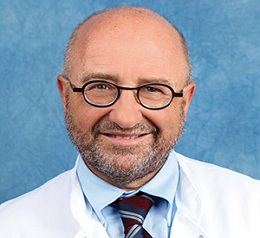Scholars
Virtual Meet on Neurology and Therapeutics
THEME: "Novel Insights and Challenges in Neurology and Therapeutics"
 14-15 Apr 2021
14-15 Apr 2021  Online | Webinar | 11:00-17:00 GMT
Online | Webinar | 11:00-17:00 GMT THEME: "Novel Insights and Challenges in Neurology and Therapeutics"
 14-15 Apr 2021
14-15 Apr 2021  Online | Webinar | 11:00-17:00 GMT
Online | Webinar | 11:00-17:00 GMT 
Fachklinik Herzogenaurach, Friedrich-Alexander University Erlangen-Nuremberg, Germany
Title: Return to Work (RTW) after Stroke
Wilfried
Schupp, MD, Medical Head at Fachklinik Herzogenaurach, is working on
neurorehabilitation since 1987 as approved neurologist, psychiatrist,
physiatrist and geriatrist. Since 1997
he became affiliated with Friedrich Alexander University Erlangen-Nuremberg as
a lecturer and researcher. He has been appointed as a member of Advisory Boards
and of Managing Groups at different legal and statutory Bavarian and German
institutions and at national scientific neurorehabilitation
and social medicine societies. He had been a Delegate to the EAN Assembly from
2015 - 2018, and is still a member of EAN scientific panel Neurorehabilitation.
His scientific work started with clinical approaches to neurorehabilitation
problems in stroke, TBI, and others, even rare neuromuscular diseases. He
published some important basic papers on organization and delivery of
neurorehabilitation treatment and services in Germany.
About 1/4 till 1/3 of stroke survivors
worldwide stay in worklife. But only about 50% will return to work afterwards.
In Germany, we had established a guideline „Stroke and RTW“ since 2012 together
with the statutory Federal Pension Insurances Institutes (DRV), which is now to
be revised.
The research on this topic has
increased in industrialised and emerging countries. About 50 reviews and
meta-analyses can be found in PubMed or EMBASE within the last ten years. They
reflect prognostic indicators, medical or vocational rehabilitation
measurements, structured qualitative interviews with stroke survivors or
employers.
Age and gender have no prognostic power
for RTW besides a small positive trend for men, nor do initial severity or
localisation of stroke. Cognitive impairments and aphasia indicate poorer RTW
chances than sensorimotor deficits. Fatigue and affective or behavioral disorders
variably decrease RTW rates, The most evidenced prognostic factor is a high
level of ADL scores (Barthel-Index or FIM) after a first stroke rehabilitation
procedure. Case management can increase, length of sick leave after stroke
decrease. Higher education and job level, an existing employment and bigger
employers improve. Stroke survivors need motivation and adaptive power for RTW.
The impact of specific vocational rehab remains unclear.
Based on these facts, after any initial
stroke rehabilitation programme reimbursed by DRV a social medical prognostic
experts‘ opinion must be given and case management for RTW will come under
research in Germany.